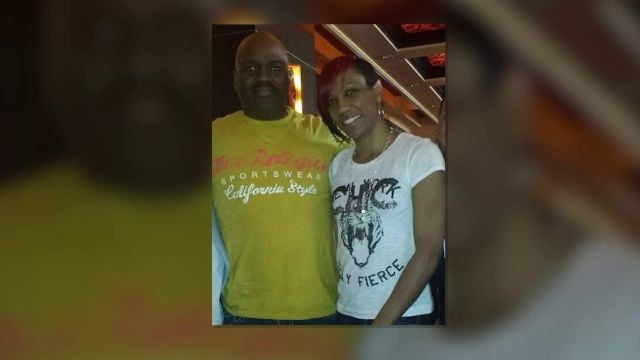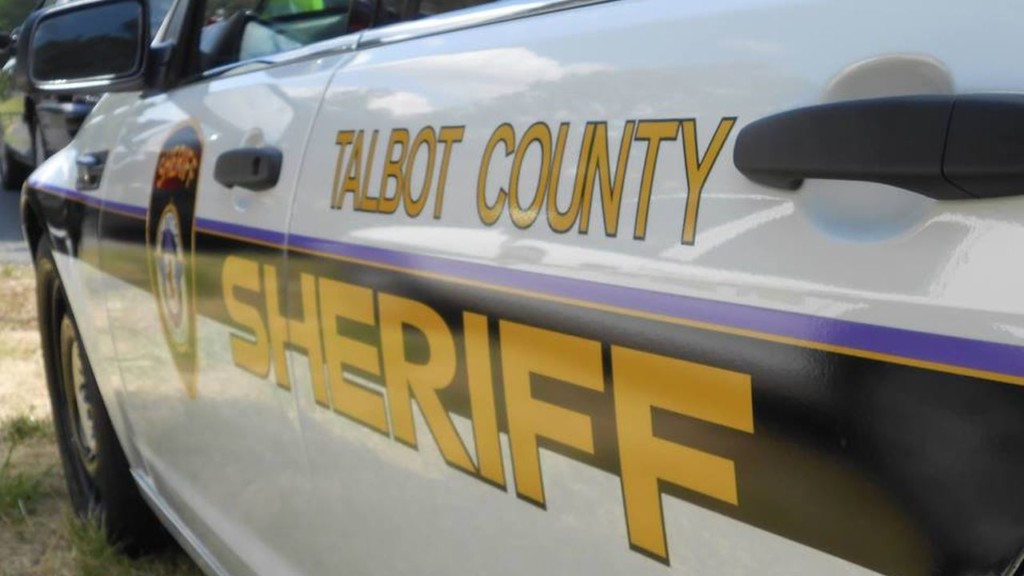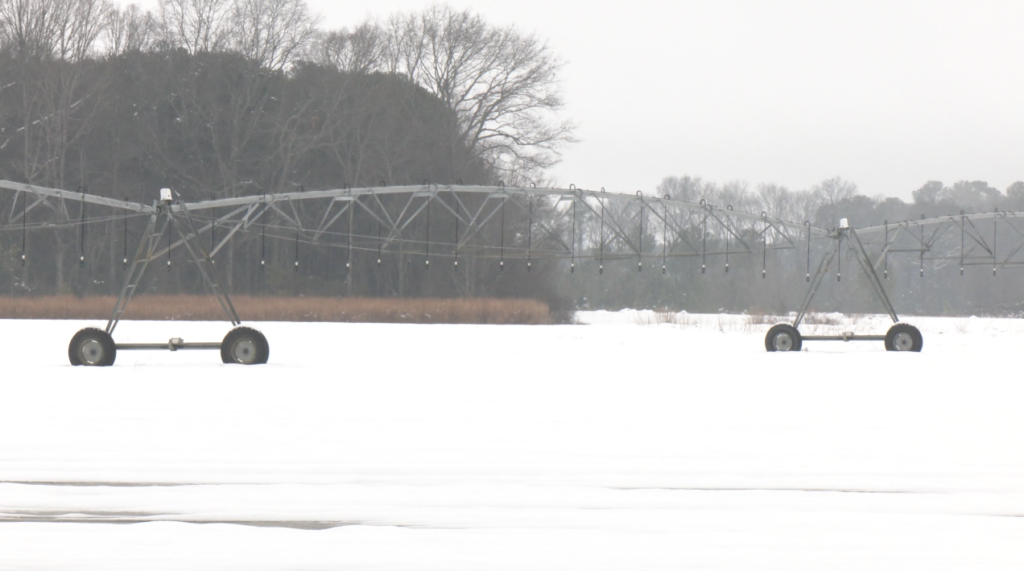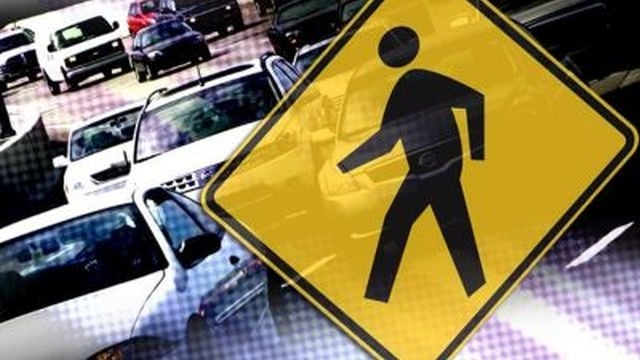No obstacle too great for woman who donated kidney

LaTwanya Goslee donated a kidney to a complete stranger. It was a gift so that her brother could get one, also from a complete stranger. But don’t call her a hero. The way she puts it, she was just helping her brother Charles.
“We’ve gone through a lot of things together, from our parents divorcing, to my mom remarrying, I mean we’ve been through a lot of things together, and now this. And this has really bonded us. I mean I’ve been trying to give him a kidney for three years,” says LaTwanya.
She says “trying” because it’s been a long road, actually stretching back more than three years.
It was 12 years ago that Charles (whose last name is Muse) found out his high blood pressure had led to kidney disease and he needed a new organ. His mother Edith and sister LaTwanya were both matches, and both wanted to donate a kidney but, as is often the case, ‘Mom’ won that argument.
“You know she’s the mom, she’s the mother hen, so she’s like you know ‘I got this.’ So it was kind of no question that she was going to be the one to lay down her life first, of course, for her son,” she said.
That transplant was a success.
With his mom’s kidney, Charles went on living and working, doing odd-jobs in Baltimore where he lives. Meanwhile, LaTwanya was in Salisbury, embracing life — she tends to do that. She was working at the IRS, raising her four kids and pursuing her passion for dance.
But about eight years later, Charles’ kidney failed, putting him back on dialysis, and LaTwanya back in the running to be a donor.
“We just kind of thought ‘Okay,I’d go in, get tested, do everything that my mom did, and give him a kidney again, and that would be the end of it,” she said.
The end was nowhere near. Doctors found cancer in one of Charles’ non-working kidneys.
Doctors removed the cancerous kidney. It delayed the transplant by a year to make sure Charles was cancer-free. Test after test showed that he was.
Then, LaTwanya started going through extensive testing of her own, from colonoscopies to cystoscopies, MRI’s and more. According to Nicole Scharf, of the National Kidney Foundation of Maryland, that’s not unusual. The tests for the donor are often more rigorous than those for the recipient.
LaTwanya traveled from Salisbury to Easton and Baltimore for tests more times than she can count, spending countless hours away from her children.
“I wanted to say ‘I’m fine! I’m healthy! Just do it!'”
Finally it was all set. Her testing was done and she was ready. So was Charles.
That’s when they got devastating news. They were no longer a match. The cancer, and his body’s response, had changed the antibodies in Charles’ blood.
“And it’s like ‘Oh my goodness, what do we do now? That was very, very, very hard,” she said.
That’s when the University of Maryland Medical Center told LaTwanya and Charles about their Paired Kidney Exchange Program.
Charles would get his kidney, just not from his sister. And she would donate a kidney, just not to her brother. If the medical center could find a match within the program for Charles, and someone LaTwanya matched, it would be a go.
But the new plan came with old obstacles.
All the tests she had gone through over a year before, she would have to do over again. “Some of these tests, because it’s been three years, I’ve done three times,” she said.
So in the fall of 2013, LaTwanya once again continued blood tests and scans, long drives and waiting rooms.
This time around, she was recently divorced, now teaching dance classes, juggling her growing children, and working toward a Master’s Degree in Cybersecurity Policy.
Oh, and she still had that IRS gig.
Even with all that, helping her brother mattered most. But optimism was starting to wear thin.
“We would get to a certain point, and we would think ‘Okay, we’ve never gotten this far before, so surely, this is it! No. You just start to wonder ‘Is this ever going to happen?’ And that’s where you wrestle with your faith,” she said.
Then finally, in 2015, surgery was scheduled for Charles.
It would be March 3rd. LaTwanya’s would be later in the month.
But even that day when Charles was wheeled into the hospital, LaTwanya was waiting for news of a specific moment.
“The moment I said ‘Okay it’s happening,” is when the kidney was removed from the donor,” she says with a laugh, “because then it has to happen. He and I together had been through so much that, to think ‘he’s actually in surgery,’ it was just amazing to me. It was actually happening at that moment after all that time.”
All that time. It had been three-and-a-half years since she first tried to give Charles her kidney. Two-and-a-half years since cancer got in the way, and 18 months since signing consent forms on the kidney exchange program.
After all the tests and disappointments, things finally went their way. His surgery went smoothly.
Charles’ surgery went smoothly. Weeks later, so did LaTwanya’s. And so did a lot of others.
It turns out that she and her brother were part of one of the largest kidney exchanges ever, 70 people. LaTwanya’s surgery was the last.
“Just to be able to be a part of it and be used in such a way, it’s humbling. And I’m really honored,” she said.
Charles doesn’t know exactly who donated his new kidney because both parties have to sign consent forms.
LaTwanya doesn’t know yet who got hers either, adding “I wish I did. I really do. I want to know how they’re doing. I think about them a lot.”
As if you couldn’t tell, family is everything to LaTwanya. They spent Easter at her house, Charles and LaTwanya recovering, and who else to take care of them, but their mother. Three people, each with one kidney, and a whole lot to live for.


